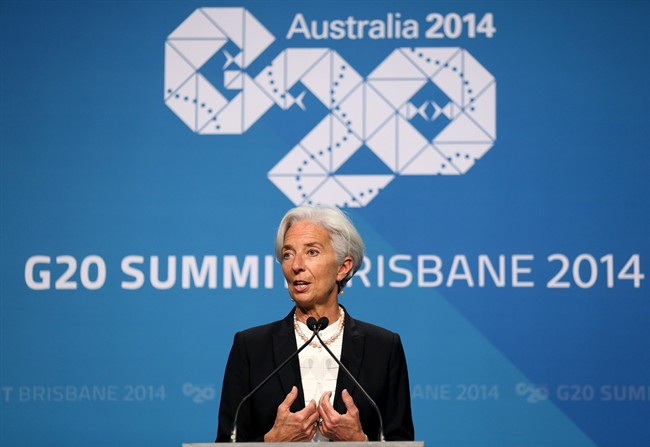BRISBANE, Australia – The communique issued by a weekend summit of the 20 biggest wealthy and developing economies spanned issues from boosting growth to combating corruption. Here are some of the commitments made by G20 leaders after two days of meetings in Brisbane, Australia.

Growth
Leaders finalized a plan outlined by their finance ministers early this year to boost the world economy. Through 1,000 policy measures, 800 of which are new, they hope to add $2 trillion to world GDP by 2018 on top of the growth already expected. World GDP this year is about $77 trillion. An assessment of the initiatives by the IMF and OECD says their clarity and concreteness has increased but some remain “insufficiently precise.” Offsetting that is a “comply or explain” requirement that might keep countries on track to meeting the goal.
Women at work
The G20 nations want to see 100 million more women in employment by 2025. That will require reducing the barriers to female participation in the workforce. It would reduce poverty and inequality and boost economic growth. But the communique does not say how this new goal will be achieved.
Tax evasion
To prevent cross-border tax evasion by corporations and wealthy individuals, G-20 countries agreed to automatically exchange tax information with each other and with other nations by 2018 at the latest. That is part of an ongoing effort to stop multinational companies lowering their tax bills by moving profits from the country where they are earned to places with lower tax rates.
Infrastructure hub
To be located in Sydney, this co-ordinating body will work with governments, companies and development banks to help the G-20 achieve a goal of increasing investment in infrastructure. It will have an initial four year mandate. Infrastructure needs in areas such as electricity networks, roads, rail and ports are particularly acute in developing countries. In Asia alone, the Asian Development Bank estimates developing countries will need to invest $8 trillion in infrastructure from 2010 to 2020 just to keep their economies moving forward.
Remittances
The money sent home by foreign workers is acknowledged as crucial for supporting millions of families and businesses in developing nations. The G-20 wants to reduce the costs of remitting funds to home countries. Currently, transfer costs consume 8 per cent, down from 10 per cent in 2011, which the G-20 attributes to collaboration between member countries. It said it is recommitting to getting the figure down to 5 per cent after failing to achieve that so far.
Corruption
G20 countries agreed to share in writing what steps they are taking to prevent abuse of shell companies. Shells conceal the identities of people who ultimately own, control, or benefit from a business and can be used to conceal criminal activity such as money laundering, tax evasion and corruption. That commitment falls short of hopes for national registers but might help put the spotlight on countries that don’t make sufficient progress.



Comments